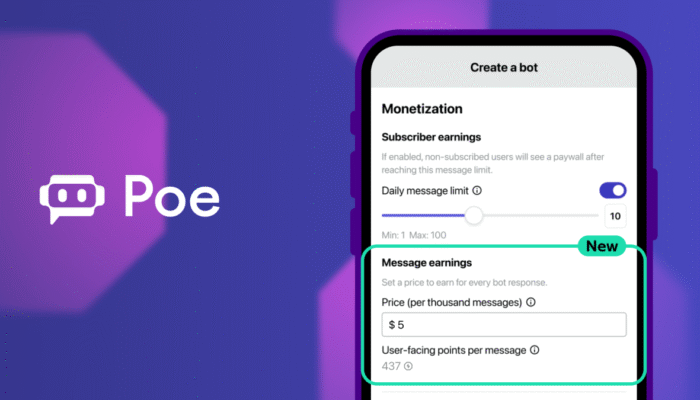Google has introduced Gemini 3, its smartest artificial intelligence model to date, with cutting-edge reasoning, multimedia, and coding skills. As talk of an AI bubble grows, the company is keen to stress that its latest release is more than just a clever model and chatbot—it’s a way of improving Google’s existing products, including its lucrative search business, starting today.
“We are the engine room of Google, and we’re plugging in AI everywhere now,” Demis Hassabis, CEO of Google DeepMind, an AI-focused subsidiary of Google’s parent company, Alphabet, told WIRED in an interview ahead of the announcement.
Hassabis admits that the AI market appears inflated, with a number of unproven startups receiving multibillion-dollar valuations. Google and other AI firms are also investing billions in building out new data centers to train and run AI models, sparking fears of a potential crash.
But even if the AI bubble bursts, Hassabis thinks Google is insulated. The company is already using AI to enhance products like Google Maps, Gmail, and Search. “In the downside scenario, we will lean more on that,” Hassabis says. “In the upside scenario, I think we’ve got the broadest portfolio and the most pioneering research.”
Google is also using AI to build popular new tools like NotebookLM, which can auto-generate podcasts from written materials, and AI Studio which can prototype applications with AI. It’s even exploring embedding the technology into areas like gaming and robotics, which Hassabis says could pay huge dividends in years to come, regardless of what happens in the wider market.
Google is making Gemini 3 available today through the Gemini app and in AI Overviews, a Google Search feature that synthesizes information alongside regular search results. In demos, the company showed that some Google queries, like a request for information about the three-body problem in physics, will prompt Gemini 3 to automatically generate a custom interactive visualization on the fly.
Robby Stein, vice president of product for Google Search, said at a briefing ahead of the launch that the company has seen “double-digit” increases in queries phrased in natural language, which are most likely targeted at AI Overviews, year over year. The company has also seen a 70 percent spike in visual search, which relies on Gemini’s ability to analyze photos.
Despite investing heavily in AI and making key breakthroughs, including inventing the transformer model that powers most large language models, Google was shaken by the sudden rise of ChatGPT in 2022. The chatbot not only vaulted OpenAI to center stage when it came to AI research; it also challenged Google’s core business by offering a new and potentially easier way to search the web.
Fears that AI could quickly supplant regular search appear to be fading as Google gains on OpenAI. The company is nearing a deal with Apple to use Gemini for the iPhone maker’s virtual assistant Siri, according to Bloomberg. Nano Banana, a capable AI tool for generating and editing images, has reportedly been a hit with users. Most importantly, generative AI does not yet seem to be eating Google’s lucrative search business. Alphabet said in its quarterly earnings this July that AI Overviews had driven a 10 percent increase in search queries.
Meanwhile, OpenAI’s latest frontier model, GPT-5, was a bit of a disappointment when it arrived in August. Some pundits called it underwhelming, and users complained about the shift to a more formal persona.
Google says Gemini 3 outperforms GPT-5 and other models on several key leaderboards, including LMArena, a popular site that lets users score models. The company says the model is better at performing simulated reasoning that involves breaking problems into parts and at planning over longer periods, which can improve the functionality of agents that use tools and the web.
“This is our most intelligent model,” Koray Kavukcuoglu, CTO of Google DeepMind, said during the prelaunch briefing. “It is the best model in the world for multimodal understanding.”
Kavukcuoglu added that Google’s huge user base is helping the company improve its models. The Gemini app has 650 million monthly users, there are 13 million developers working with Google’s models, and 2 billion people use AI Overviews each month. As users interact with a chatbot or an AI app, their responses can be used as training data—showing, for instance, when a model needs to improve expertise in a particular area. Kavukcuoglu adds that Google’s ability to design silicon and operate data centers also give it an edge. “We have a very differentiated full-stack approach,” he said.
Google says that Gemini 3 will be rolled out to Google AI Plus and Google AI Pro subscribers, who pay $19.99 and $249.899 per month, respectively, in the coming weeks. The company is also launching a new AI programming tool called Antigravity that is powered by Gemini 3.
Bubble or not, Hassabis says that Gemini 3 will be a platform for building more capable AI in the future. “I still think we are five to 10 years away from what I would call proper full AGI,” he says. “And that may require one or two breakthroughs on top of the models that are just getting better and better.”




